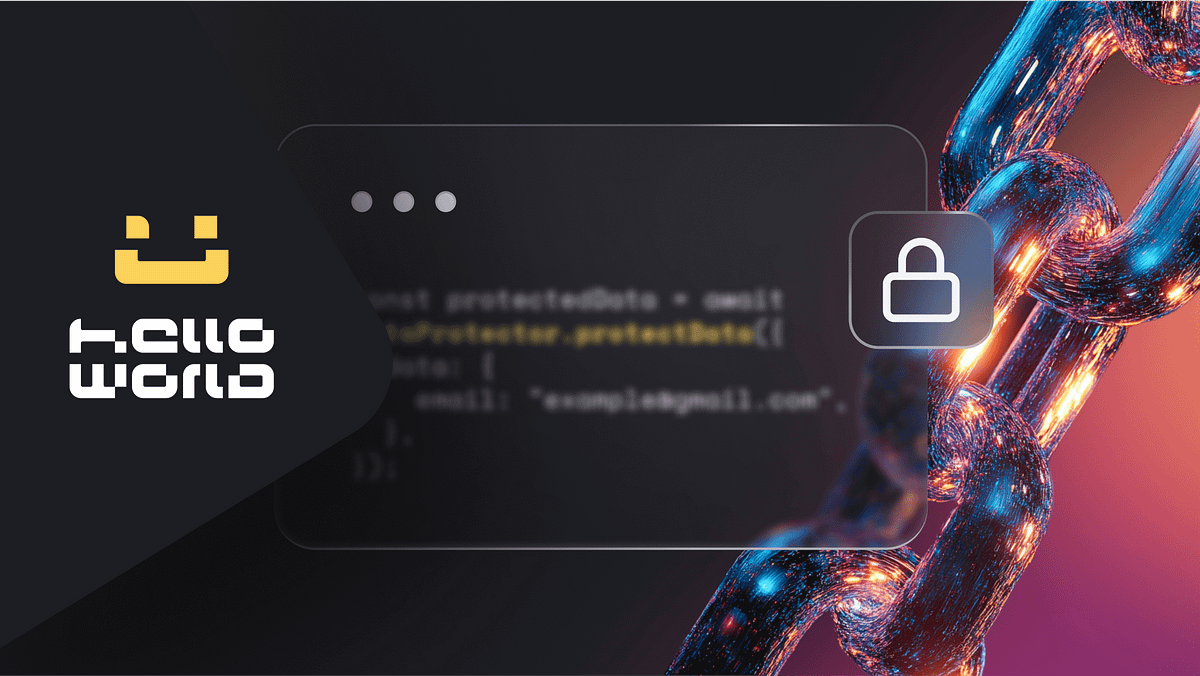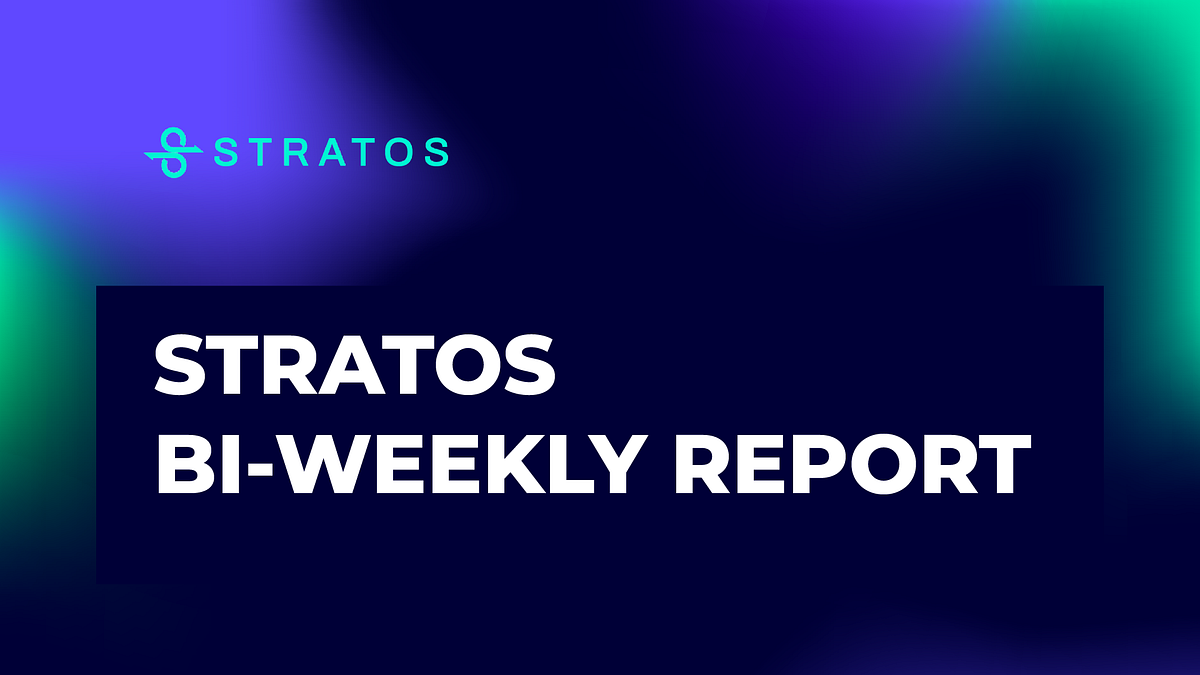Latest DePIN News

4 months ago
Weaver Labs Updates Roadmap for Adeno Token in 2025
In the rapidly evolving telecommunications sector, innovation often faces significant hurdles. Despite the potential of blockchain technology to revolutionize network infrastructure, many decentralized projects, such as Helium and XNET, have had to pivot from ambitious plans involving 5G deployment to more traditional solutions like Wi-Fi. These shifts highlight the industry's resistance to change and the challenges of integrating new technologies into existing frameworks. As companies like Nova Labs' Helium network adapt to user experience and implementation difficulties, the need for a pragmatic approach becomes clear, especially for startups like Weaver Labs, which is focused on creating an open marketplace for telecom infrastructure through its Adeno Token.
Weaver Labs recognizes the slow pace of change within the telecom industry, particularly regarding shared infrastructure and open networks. The company's updated roadmap for 2025 emphasizes practical steps that align with current market realities while maintaining a long-term vision. Unlike many DePIN projects that struggle with product-market fit, Adeno aims to empower existing telecom networks rather than disrupt them. By integrating with current infrastructure through its Network-as-a-Service (NaaS) model, Adeno seeks to create a sustainable ecosystem where token use is driven by real-world demand rather than speculation.
Looking ahead, Weaver Labs plans to list the Adeno Token on centralized exchanges in 2025, focusing on private telecommunications networks and testing new use cases that leverage blockchain technology. Collaborations with partners like Streamr and Liquid aim to enhance data transmission and infrastructure sharing, particularly in underserved regions. By prioritizing partnerships and practical applications, Weaver Labs is positioning itself to navigate the complexities of the telecom landscape while fostering a community that supports the future of decentralized telecommunications.

4 months ago
FXGuys: A Rising Star in the DeFi Landscape
The cryptocurrency market is witnessing a surge in innovation, with FXGuys emerging as a notable contender among high-potential altcoins and DeFi projects. Unlike established players like Filecoin and Hedera, FXGuys combines staking opportunities with a unique prop trading funding program. This innovative approach not only attracts investors but also creates a robust ecosystem for traders, making it a promising alternative in the rapidly evolving crypto landscape.
FXGuys stands out with its unparalleled staking rewards, allowing users to stake $FXG tokens and earn a 20% profit and revenue share from broker trading volumes. This feature positions FXGuys as one of the best DeFi tokens, offering passive income opportunities for its holders. Additionally, the revolutionary Trade2Earn program incentivizes traders by rewarding them with $FXG tokens for every trade executed, fostering increased trading activity and volume. With over $3.9 million raised in its Stage 3 presale, the $FXG token is currently priced at $0.05, reflecting strong investor interest and potential for growth.
What sets FXGuys apart from its competitors is its commitment to accessibility and convenience for traders. The platform supports multiple trading platforms, including MT5 and cTrader, and offers same-day deposits and withdrawals in over 100 local currencies. Furthermore, FXGuys eliminates barriers such as buy/sell taxes on $FXG and KYC requirements for decentralized trading, making it an attractive option for both seasoned traders and newcomers. As FXGuys continues to gain traction, its unique offerings position it as a leading player in the DeFi space, poised for significant growth in the coming months.

4 months ago
DIMO Introduces Oracles: A Major Upgrade for Data Integration
DIMO is undergoing a significant upgrade with the introduction of Oracles, which are currently being tested by initial developers. This upgrade is pivotal for decentralizing the DIMO protocol, allowing third-party data sources, such as vehicle manufacturers or developers, to contribute their data. Once activated by end users, this data flows into a secure vault, making it accessible to developers via DIMO APIs. This advancement not only enhances the amount of data available for application development but also increases the potential for creating valuable new services and applications on the DIMO platform.
An Oracle serves as a conduit for data to enter the DIMO network, which can include hardware devices or API integrations with companies like Tesla and SmartCar. Currently, there are six existing Oracles, including integrations with Tesla and SmartCar, as well as three hardware devices. It is essential for users to activate these data streams, similar to connecting a DIMO hardware device or a Tesla through the DIMO mobile app. This activation allows users to share their data with various applications, thereby enriching the DIMO ecosystem and providing developers with more data to work with.
The introduction of Oracles marks a significant step in expanding DIMO beyond telematics data. Developers can now integrate various data types, such as electric vehicle charger data or video feeds, into the DIMO ecosystem. This expansion is crucial for the growth of DIMO, as it will enable innovative applications and advanced AI model training. Furthermore, the DIMO Foundation is exploring future tokenomics proposals to incentivize developers for creating and maintaining these data connections, thereby enhancing the overall value of the DIMO platform for its users and developers alike.

4 months ago
iExec Launches Hello World Tutorial for Building Privacy-First dApps
Building decentralized applications (dApps) can often feel overwhelming, but iExec's Hello World tutorial simplifies the process for developers at all levels. This hands-on guide focuses on creating privacy-first blockchain applications, emphasizing the importance of data protection, management, and sharing. By utilizing tools like the DataProtector SDK and iExec Apps (iApps), developers can learn to build applications that prioritize user control and data security in just 30 minutes.
The iExec platform is designed for developers who want to ensure privacy and security in their dApps. With features like the DataProtector SDK, developers can encrypt sensitive data throughout its lifecycle, while iExec Apps utilize Trusted Execution Environments (TEEs) to process data securely. This combination of blockchain technology and Confidential Computing allows for secure handling of sensitive information, making it ideal for applications in sectors such as healthcare and finance. Additionally, iExec provides monetization opportunities, enabling developers to tokenize and monetize their data while maintaining security for both builders and end-users.
iExec Hello World serves as a stepping stone for developers looking to create impactful decentralized applications. After completing the tutorial, participants can claim a BUILD voucher to access advanced tools and resources, join the iExec developer community for collaboration, and explore real-world use cases. The structured approach provided by iExec ensures that building privacy-first dApps is not only achievable but also rewarding, empowering developers to protect sensitive data and create innovative solutions in the blockchain space.

4 months ago
The Rise of Real World Assets and AI Agents in Cryptocurrency
The cryptocurrency market is witnessing significant shifts with the emergence of two key sectors: Real World Assets (RWA) and AI Agents. These sectors are not only introducing substantial value by bridging traditional finance with blockchain technology but are also redefining the narrative of cryptocurrency from mere speculation to utility-driven assets. As both sectors flirt with the trillion-dollar asset class, they showcase the potential to reshape the future of Web3, despite the volatility inherent in the crypto space.
Recent trends indicate contrasting fortunes for RWA and AI Agents. While the AI Agents sector has seen a dramatic decline in market value, dropping from over $20 billion to approximately $6.2 billion in just a few weeks, the RWA sector has demonstrated resilience and continued growth. RWA allows for the tokenization of traditional assets such as real estate and stocks, providing tangible value to blockchain platforms. Projects like Ondo Finance and MANTRA Chain are leading the charge in the RWA space, while Virtuals.io stands out in the AI Agents sector, highlighting the innovative capabilities of these technologies.
The growing influence of RWAs and AI Agents is indicative of a broader shift in blockchain technology usage. By facilitating the tokenization of both digital and physical assets, RWAs are paving the way for traditional finance to integrate with blockchain. Simultaneously, AI Agents are enhancing the efficiency of decentralized finance (DeFi) through automation and optimization. Together, these sectors are creating new opportunities for developers and financial institutions, moving the crypto market towards a more sustainable, utility-driven future. As the landscape evolves, the potential for institutional investment in these areas appears promising, signaling a maturation of the blockchain industry that prioritizes real-world applications and value.

4 months ago
Bitcoin Surges Above $97k as Remittix Presale Hits $11 Million
In a notable weekend rally, Bitcoin has surged nearly 1%, trading above $97,000, marking a significant shift in the cryptocurrency market. This uptick comes after a period of volatility, with Bitcoin's price currently standing at $97,262. Investors are expressing optimism about Bitcoin's potential for further growth in the medium to long term, which may also bolster confidence in altcoins that are developing infrastructure for users. As the market continues to evolve, the performance of Bitcoin could influence the broader cryptocurrency landscape.
One project making waves in this environment is Remittix, a PayFi initiative designed to simplify cryptocurrency payments. Remittix aims to merge traditional payment systems with decentralized finance, allowing users to send fiat to any bank account globally using crypto. The platform promises no hidden fees or expensive conversion rates, ensuring that recipients are unaware that the original payment was made in cryptocurrency. This innovative approach could attract both novice and experienced users, making it easier for them to navigate the crypto space.
The Remittix presale has gained significant traction, raising over $11 million in just two weeks, with nearly 450 million of the 750 million available $RTX tokens sold. The presale's target is set at $36 million, and the liquidity pool along with team tokens will be locked for three years, enhancing investor confidence. With a successful smart contract audit completed, Remittix is poised for a promising launch on centralized exchanges and Uniswap. As the presale progresses, investors have a unique opportunity to acquire $RTX tokens at a discounted price before they hit the market, potentially positioning themselves advantageously in the evolving crypto payment landscape.

4 months ago
GEODNET Achieves Unprecedented Growth in Satellite Mining and Token Value
In 2024, the Solana-based Global Earth Observation Decentralized Network, GEODNET, has experienced remarkable growth, with a staggering 219% increase in active RTK (Real-Time Kinetics) satellite miners. This surge has positioned GEODNET as the leading player in the satellite mining industry, surpassing established centralized competitors like Trimble. By the end of the year, GEODNET has amassed over 12,000 active RTK satellite miners, reflecting a growing demand for decentralized Earth observation and real-time satellite data, which is becoming increasingly critical in various sectors.
A significant highlight for GEODNET in 2024 was the impressive rise in the value and market capitalization of its native token, GEOD. By year-end, the token reached a circulating market capitalization of $62 million, marking a 59% increase quarter-over-quarter and an astounding 524% year-over-year. Notably, a major token unlock on December 28, 2024, involving 32.46 million GEOD tokens, did not negatively impact the token's price; instead, it rallied post-unlock, showcasing the market's confidence in GEODNET's potential. This positive momentum positions GEOD as a serious contender in the decentralized geospatial data arena.
GEODNET's strategic initiatives in 2024 included securing $2 million in funding from prominent investors like Animoca Brands and ParaFi, which will be used to diversify revenue streams and enhance technology adoption. The launch of the GEO-PULSE GPS receiver, priced at $149, further exemplifies GEODNET's commitment to delivering precise navigation solutions. Additionally, partnerships with industry leaders such as Septentrio and Bad Elf were announced at CES 2025, aimed at expanding the adoption of GEODNET's RTK network across various sectors, including autonomous vehicles and precision agriculture. With these advancements, GEODNET is poised for a bright future in the decentralized Earth observation landscape.

4 months ago
Stratos Network Launches Metanode Upgrade and Prepares for Major Expansion
In a significant development for the Stratos network, the team has successfully completed the Metanode Migration on the Mesos Testnet and launched the new Metanode Network on the mainnet. This upgrade has resulted in a remarkable enhancement in network performance, allowing for faster data retrieval and improved data transfer capabilities. Notably, the Metanode Network is now able to handle the same volume of traffic as before the migration while utilizing only about 10% of the previous hardware resources. This advancement not only strengthens Stratos’ decentralized infrastructure but also enhances its efficiency and scalability, paving the way for continued network growth.
Following the deployment of the Metanode update, the Stratos network faced attempts from some users to exploit strategies that were effective prior to the upgrade. These attempts involved uploading and downloading large volumes of files to skew rewards in favor of their storage provider (SP) node. However, the enhanced Stratos network managed to handle the increased traffic seamlessly, demonstrating its resilience and readiness for high-traffic usage. This stress test has confirmed that Stratos is well-prepared for its upcoming release of Stratos Drive and the Stratos Interplanetary File System (SPFS), which is expected to host the largest IPFS cluster upon its launch.
In addition to these technical advancements, Stratos has formed strategic partnerships with VeWare.io and EdgeX to bolster its ecosystem. The collaboration with VeWare.io aims to transform crypto insights and data integrity, while the partnership with EdgeX will integrate Stratos’ decentralized storage into its intelligent edge network, enhancing services for Web 3.0 projects and decentralized applications (dApps). Furthermore, Stratos has joined forces with SOLO to revolutionize token distribution through mining-based models, ensuring scalable, private, and fair dApps and AI agents. With the final round of testing for Stratos Drive underway, the community is eagerly anticipating the launch of this game-changing decentralized storage solution, which promises to empower users to take control of their data in the evolving digital landscape.

4 months ago
Arkreen: Pioneering a Decentralized Energy Future
The energy sector is currently experiencing a significant transformation, shifting from traditional fossil fuel power plants to Distributed Energy Resources (DERs) primarily powered by renewable energy. This transition is accompanied by a growing demand for electricity driven by AI and digital applications, which is becoming increasingly decentralized. The challenge lies in efficiently matching these fragmented supply and demand sources globally, paving the way for a peer-to-peer (P2P) energy asset trading marketplace. Arkreen is at the forefront of this movement, leveraging the Decentralized Physical Infrastructure Network (DePIN) model to facilitate community collaboration and unlock the potential of distributed renewable energy assets.
Arkreen aims to build a trustworthy, digitized global energy asset network using blockchain technology. This infrastructure allows for efficient coordination and transparent management of energy resources worldwide. By connecting distributed residential renewable energy assets, such as solar PV systems and energy storage, Arkreen enables the monetization of these assets on a global scale. The platform's open framework integrates long-tail residential energy assets with on-chain economies, including Renewable Energy Certificates (REC) and Virtual Power Plants (VPP), ensuring a secure and flexible solution for energy asset monetization.
Recently, Arkreen completed its Token Generation Event (TGE), establishing a token-driven economic model that encourages participation from both supply and demand sides. The project has already connected over 200,000 distributed solar energy data nodes and issued 120 million kWh of tokenized RECs. Looking ahead, Arkreen plans to expand its network to connect 1 million DERs globally, develop a Web3 carbon neutrality standard, and create the largest on-chain renewable energy certificate retail market. By fostering a decentralized energy network, Arkreen envisions a future where energy is accessible and beneficial for all, empowering communities to collaborate towards sustainable energy solutions.

4 months ago
Roam Launches Pilot 'Burning' Pool Event for $ROAM Token Conversion
The 2025 Lunar New Year Pilot "Burning" Pool Event, which commenced on January 24, has seen a significant number of users converting their Roam Points into the upcoming $ROAM tokens. Roam has introduced three distinct pilot pools for users to engage in the "burning" process: the General Pool, Miner Pool, and Sticker Pool. Each pool offers unique rewards, and users must familiarize themselves with the specific rules governing participation. To join the event, users need to create an account on the Roam App and earn at least 500 Roam Points, holding them for a minimum of 48 hours before they can begin the burning process.
Many users have raised questions regarding the burning process, particularly about issues they may encounter. Common concerns include the inability to burn points due to insufficient Roam Points, exceeding sticker limits in the Sticker Pool, or selecting the wrong pool for their points. Additionally, app performance issues can affect the burning process, and users are advised to ensure they are using the latest version of the app. It's crucial to note that once the burning cycle begins, it cannot be reversed, and users should carefully evaluate their points and the conversion rates before committing.
Looking ahead, the Pilot "Burning" Pool will serve as a precursor to the official "Burning" Pool, which will incorporate improvements such as removing sticker limits and enhancing the overall efficiency of the process. Users can claim their $ROAM tokens after the Token Generation Event (TGE), with a total supply of 1 billion tokens, of which 400 million will be available at the TGE. For any issues or inquiries, users are encouraged to contact the Roam team through their official channels for support.
Signup for latest DePIN news and updates